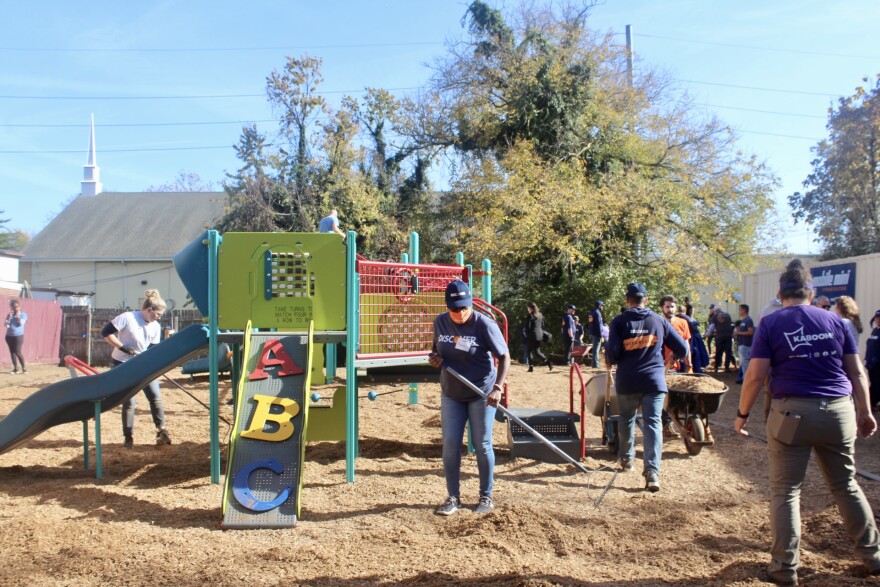Neighborhood House is a non-profit working to provide wrap-around services to the Wilmington community, and some of those services include preschool education and afterschool care.
With the help of a myriad of organizations, including Discover Bank and the Delaware Community Foundation, a new playground meant to accompany programs serving the community’s youngest members was built in just 3 days.
Discover Bank’s Amy Walls says KABOOM!, a non-profit working to end playspace inequity, played a big role.

“They engage the community and the children in the design of the playground concept. So the children drew pictures of what they’d love to see, they got the opportunity to vote on a couple of different choices of playground equipment that they’d like,” said Walls. “And it really makes it such a great, comprehensive process, where everyone feels engaged and involved. And we see something like an empty lot become a playground in just 3 days.”
Over 100 volunteers lended a hand to build the playground on a lot that was previously owned by Habitat for Humanity, who worked with the Delaware Land Bank to give that property to Neighborhood House in exchange for a different property to use for their mission.
Richard Gessner is the Volunteer Chairman of the Wilmington Conservancy Land Bank. He says the Land Bank had complete cooperation from the city and state when working with the property.
“The Land Bank worked with the city and the state to get the proper permits. We got the property remediated, so all of the harmful elements in the soil were removed. And we got the property ready to be turned into a playground,” said Gessner.
And Neighborhood House Executive Director Alison Windle says building a playground is just the first phase of their plan. Phase 2 will engage older kids through a multi-sport court in the same lot.
“And Phase 3 is what’s called a Green Classroom. So we will install raised flower beds and garden beds. And the youth of Neighborhood House, and the community, and youth that want to be involved, will plant flowers and vegetables, raise them, and then we’ll have a farmers market here and they’ll be able to sell their tomatoes and carrots,” explained Windle.
Funding for the first phase of the project came from a variety of sources, including $348,000 from the state’s Bond Bill, and $120,000 from Discover Bank.



